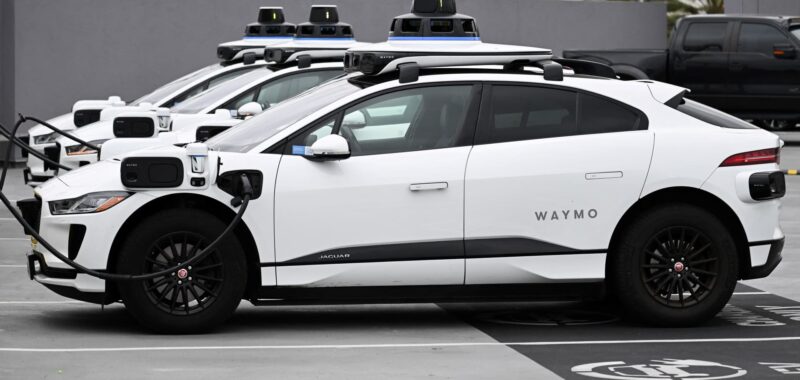Uber announced Friday it is expanding its partnership with Alphabet’s Waymo to offer robotaxi rides in Austin, Texas, and Atlanta beginning in early 2025. Shares of Uber jumped 5% on the news while Alphabet rose about 1%.
Uber riders in those cities can be matched with a driverless Waymo car for some trips, according to the companies. The rides will only be available through Uber’s app, unlike in San Francisco and Los Angeles where riders book through the Waymo app. A Waymo spokesperson said it had no plans to partner with Uber in San Francisco and Los Angeles.
The expansion comes as Uber faces investor pressure to step up its autonomous vehicle strategy, especially ahead of Tesla‘s planned robotaxi event slated for Oct. 10. Shares of Uber have fallen 9% since the Tesla event was announced and are off 17% from their 52-week highs.Â
It may also slow Waymo encroachment into Uber’s market share. An analysis from Bernstein estimated that, as of May 2024, Waymo’s 50,000 weekly paid rides made up approximately 2% of ride-sharing usage in San Francisco. Since then, Waymo has doubled its paid robotaxi trips to 100,000 a week, the company announced.Â
“We’re thrilled to build on our successful partnership with Waymo, which has already powered fully autonomous trips for tens of thousands of riders in Phoenix,” Uber CEO Dara Khosrowshahi said in a release.Â
Uber’s initial agreement with Waymo in Phoenix also included autonomous Uber Eats deliveries in the city. The expansion into Austin and Atlanta won’t include Uber Eats at first, according to the Waymo spokesperson, but they’re exploring that possibility for the future.Â
Waymo co-CEO Tekedra Mawakana said, “We’ve been delighted at the positive feedback from our Waymo One riders to date, and we can’t wait to bring the comfort, convenience, and safety of the Waymo Driver to these cities in partnership with Uber.”Â
The expansion into two more cities is another step in Uber’s advancement into the robotaxi space, after struggling to get a foothold and selling off its own self-driving division in 2020, now relying on partnerships with companies including Waymo, GM‘s Cruise and the SoftBank-backed U.K. startup Wayve to gain ground.Â
Uber shares dipped in August after the company announced a multiyear partnership with Cruise to offer autonomous rides through its app next year. Wells Fargo analyst Ken Gawrelski cited Cruise’s previous safety challenges as a part of the investor skepticism, along with now-fulfilled hopes for a partnership with Waymo instead.Â

Waymo has rapidly made strides in the self-driving race. It currently offers robotaxi services to the public in San Francisco, Los Angeles and Phoenix. It has logged more than 22 million miles through June of this year, and last week, it released a report that argued its vehicles are safer than human drivers. It began testing driverless cars on Bay Area freeways with Google employees in August.
Some analysts were more hopeful for a potential Uber and Waymo expansion into San Francisco. But Atlanta and Austin, where Waymo has already begun testing, may still help sentiment.Â
â CNBC’s Laura Batchelor and Lora Kolodny contributed to this article.

